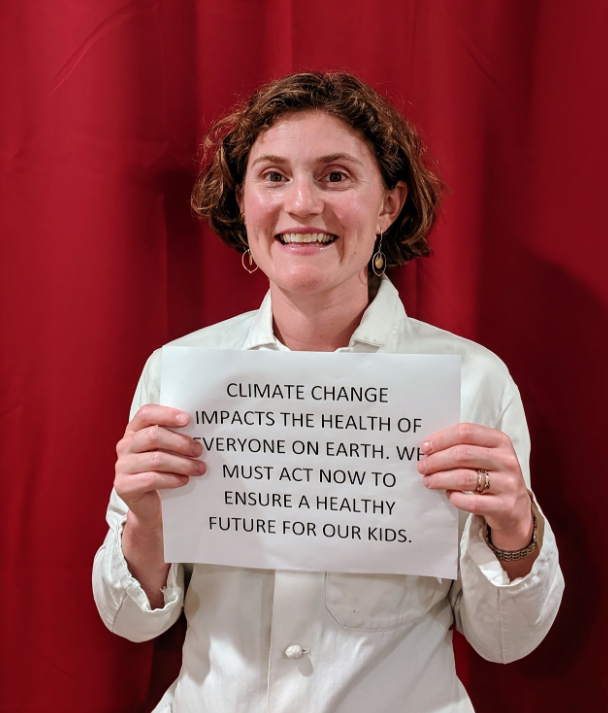Notes from a doctor and ‘wannabe’ climate change activist
Dr. Amanda Millstein
Originally published in Pediatric Insider News
I don’t know if it’s the last two seasons of wildfires in Northern California. I don’t know if it’s that I now have two young kids whose futures are at the forefront of my thoughts and my every decision. But I cannot stop thinking about climate change and what it means for our kids, their kids, and the future of our planet.
As a primary care pediatrician, I am by nature a child advocate and therefore an advocate for the future. My training and my scope of practice have equipped me to think critically about how stress in a child’s home or school can impact his or her health. The threats of a changing climate – increasing frequency of natural disasters, heat waves, extreme weather conditions – are disproportionately going to affect my children and my patients.
The truth is, more often than not, I feel paralyzed by the hugeness of this problem and unsure how to proceed. I want to be a climate change advocate, but I feel overwhelmed about where to begin. On a personal level, I am working to eliminate my plastic usage, driving an electric car, and walking whenever possible. I am using cloth napkins and buying second-hand clothes for myself and my kids. I am talking to my 3-and-a- half-year-old son about food and paper waste and the importance of taking care of the earth. But how do I talk to him about fires and floods and hurricanes that are the result of years of humans being poor environmental stewards? At work, many of the families I work with have such pressing concerns – food insecurity, community violence, immigration status – that it feels that the discussion of climate change and its associated threats are secondary to what is going on in their lives this minute and this week.
I was recently talking to my own primary care doctor at Kaiser Oakland, who calls herself a climate change physician. She believes that physicians are uniquely positioned both by our training and also our respected status in our communities to educate people about climate change and help set into place policies that will ideally mitigate its effects. This idea resonates deeply with me. She and I also talked about how as physicians we have the ability to hold a long timeline in our heads. We have the unique privilege of worrying not about getting food onto our kids’ dinner plates tonight, but about what our kids will serve their kids for dinner decades from now.
I understand that there is a lot of work being done in this area. Recently the American Academy of Pediatrics and American Medical Association, as well as many other international and national organizations, signed their names to U.S. Call to Action on Climate, Health, and Equity. There are federal and state-based organizations that are organizing around these issues, as well as local organizations. I recently joined the Health Care Without Harm Physician Network, which aims to help the health care sector worldwide reduce its environmental footprint and whose resources are available to all. This feels like a start, but I am still unsure of exactly how to leverage my role as a community-based pediatrician in a meaningful way.
My question is: How do we as pediatricians, especially those of us who are community-based without the structure of a Kaiser-type organization behind us, talk to our patients in our clinics and our communities about these issues? How can we best leverage our position to not only educate our patients and families but also promote policies that will make a difference?
I want to be a climate change advocate. The time is literally now – if we as Americans and as a world don’t make some large changes now, the future for our kids and their kids is in serious jeopardy. I would love to hear what others in this group are thinking. Please email me with any thoughts, ideas, or ways to engage around this topic with fellow pediatricians and with our patients.
